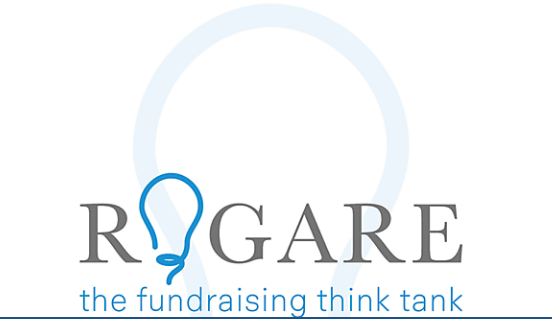Earlier this year I sat in the front row at an Alliance breakfast event nodding my head in empathetic agreement with every new sentence that Sheffield Business School’s Tracey Coule delivered to delegates.
Coule – who is also research-to-practice editor at the Non-profit and Voluntary Sector Quarterly (NVSQ) – was talking about the inherent difficulties in ‘translating’ academic research into a language practitioner audiences could understand, issues she outlined in her article in the March edition of Alliance.
I run a think tank – Rogare (Latin for ‘to ask’) – that aims to translate academic research into professional practice, so we straddle the academic-practitioner divide. I talk of Rogare as being the ‘engine’ that turns academic ideas into something that can be used by practitioners.
Which is easier said than done, and I recognised those issues described by Tracey Coule felt the same frustrations I suspect she did.

The Alliance March Breakfast Club panel: (L to R) Paul Ramsbottom, Dr Tracey Coule, Charles Keidan, Professor Cathy Pharoah.
The schisms Coule describes for philanthropy research also exist for fundraising research: academic articles are written in a language practitioners don’t understand and can’t apply; many academics don’t consider practitioner research to be sufficiently robust; while many fundraisers simply don’t see the value of academic research at all, irrespective of whether it were more accessible.
There is a particular learning culture in fundraising that puts store by how ‘passionate’ fundraisers are for the cause and tends to downplay or derogate their actual ‘passion’ for their professional role.
This encourages a ‘just do it’ mindset, and it’s no surprise that few fundraisers habitually consult research when planning their strategies or campaigns.
Chicago University’s Science of Philanthropy Initiative (SPI) found that 48 per cent of fundraisers never consulted academic research before making decisions, while 45 per cent “sometimes” did – only seven per cent did so regularly.
This culminates in a ‘copy the case study’ culture of learning whereby fundraisers learn at conferences from other people who have also learned by listening to people at conferences.
Fundraisers often try to fill gaps in their knowledge through market research or conducting their own research (the type of research academics often look down their noses at), which is easier to apply in professional practice than the more robust academic research, which practitioners don’t see the point of if it can’t be applied.
Rogare has tried to bring more academic theory into fundraising to underpin some of its core concepts. We are developing a new theory of normative fundraising ethics, and we have explored the theory form social psychology that underpins relationship fundraising.
 While what Rogare is trying to do seems to have chimed with many fundraisers, there is nonetheless a significant undercurrent that considers that we are “over-thinking” things.
While what Rogare is trying to do seems to have chimed with many fundraisers, there is nonetheless a significant undercurrent that considers that we are “over-thinking” things.
The problem stems, in part, from a consideration of whether fundraising is really a ‘profession’.
Unlike other professions, there is no body of knowledge that fundraisers must acquire before they start working in the field (as is the case for law, for instance), or to that they must learn after they get their first fundraising job in order to continue (as happens in accountancy and surveying).
There is very little fundraising studied at undergraduate level.
Fundraisers thus rarely learn about the theories and evidence that underpin what they do, as new entrants to fundraising’s sister discipline of marketing do in their marketing degrees.
As I said, one of the things we are trying to do is translate academic ideas into professional practice and close the gap in perception and reality between the academic and practitioner branches of the fundraising ‘profession’.
To that end, we have developed a new theory of change that encourages fundraisers to interrogate their own professional knowledge base to identify where they think the gaps are. By asking better questions, and having conversations about how those gaps can be filled, we hope fundraisers will come to see the value that academic research can provide.
But at the same time, it means practitioners will be asking the academy to fill specific gaps in professional knowledge, not merely handing down to practitioners findings on the topics academics prefer to research. Perhaps one of the problems, across wider philanthropy research, has been that academics have seen practitioners as passive beneficiaries of their learning.
The key for Rogare to persuading practitioners of the value of academic research is to get them asking questions about what evidence and theory they currently have (and whether it’s any good), what new evidence and theory they need, and where they might come from.
But we’re well aware that we can’t reach then entire profession of fundraising at one fell swoop. Our solution is to try to create a movement of critical thinkers in fundraising who are able to influence other influencers and thought leaders to ask more questions and demand from academics the research that is currently missing in practice.
We are looking for a genuine paradigm shift in the way fundraisers use theory and evidence in the planning and decision making, so that future fundraisers don’t think using research is ‘over-thinking’ things. Hopefully Tracey Coule won’t be saying the same things in the middle of the next decade. But if she is, I’m hoping I won’t be nodding in agreement.
Ian MacQuillin is director of fundraising think-tank, Rogare.






Comments (1)
Marvelous piece, Ian. Of course, I'm biased... I came to fundraising like so many others of my generation ... by reading best practice books and learning while doing and going to conferences. BUT, I began early on reading Harvard Business Review and academic books re: systems thinking, etc. I value the blend of both... Practice and Academics. I want fundraising to make itself a profession. I want respect for Pracademics. And I'm proud to be associated with Rogare and the Hartsook Centre for Sustainable Philanthropy.